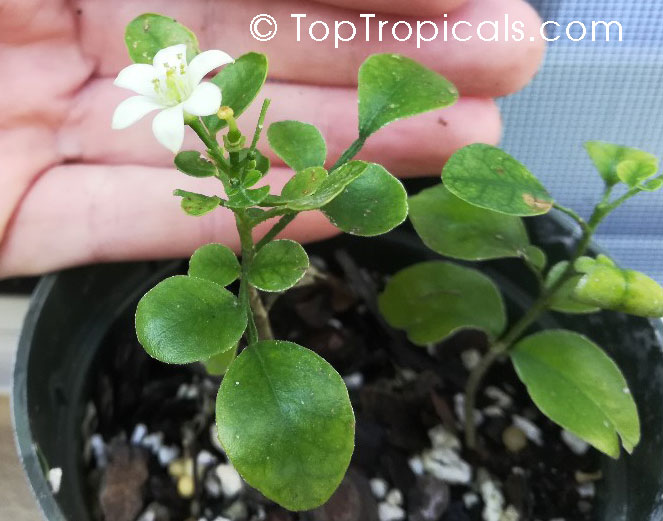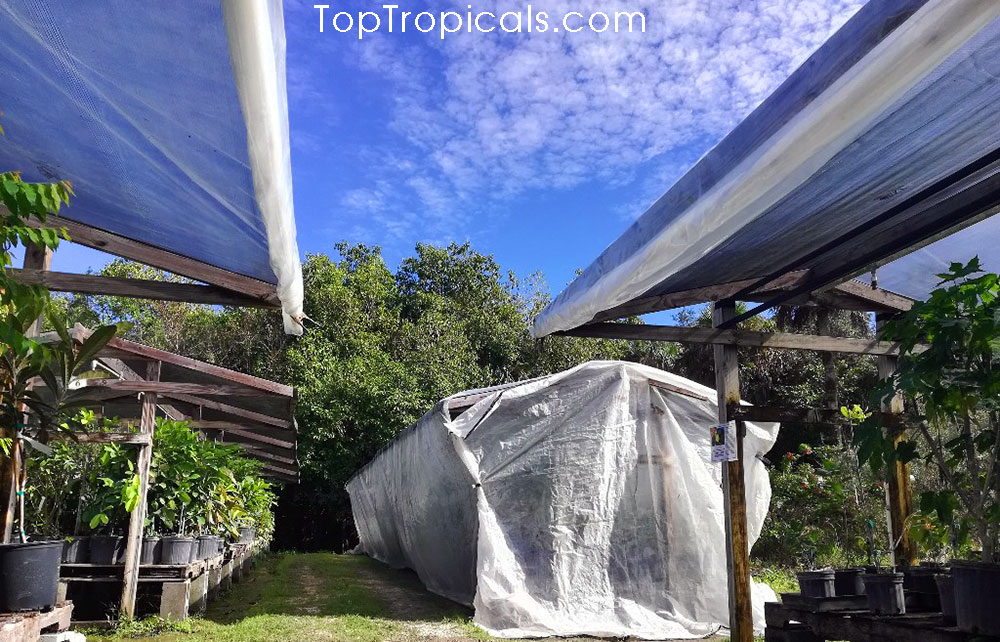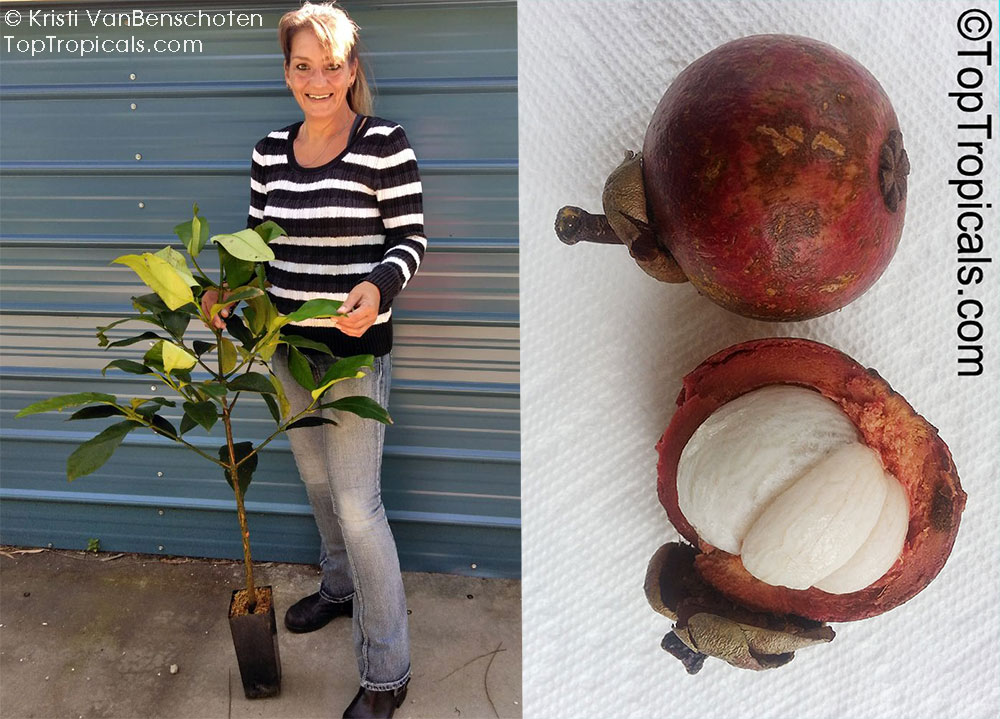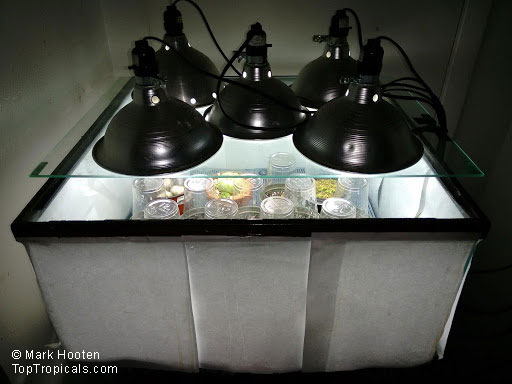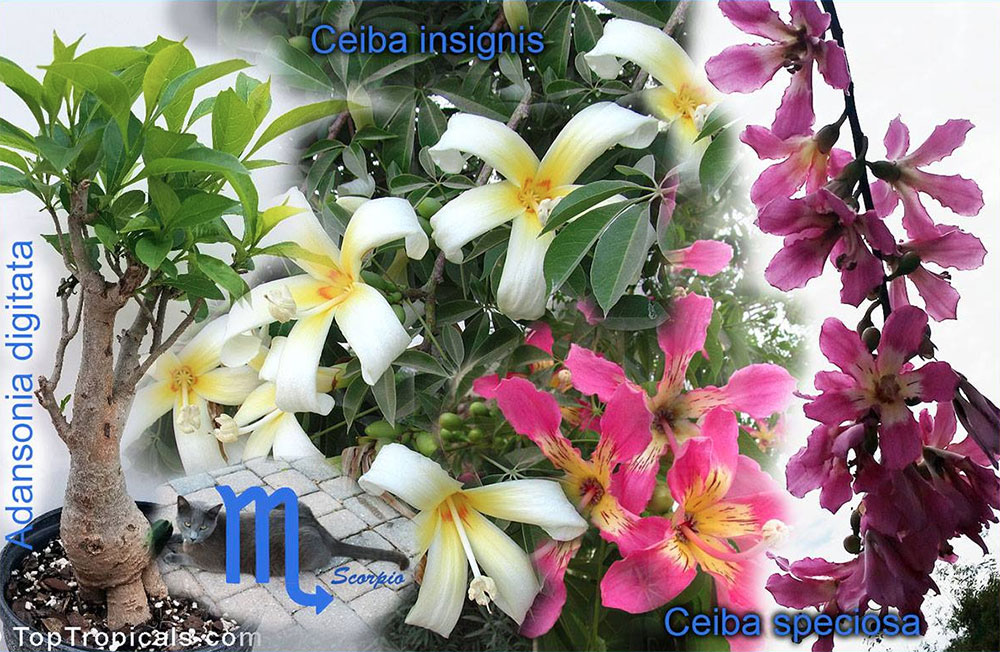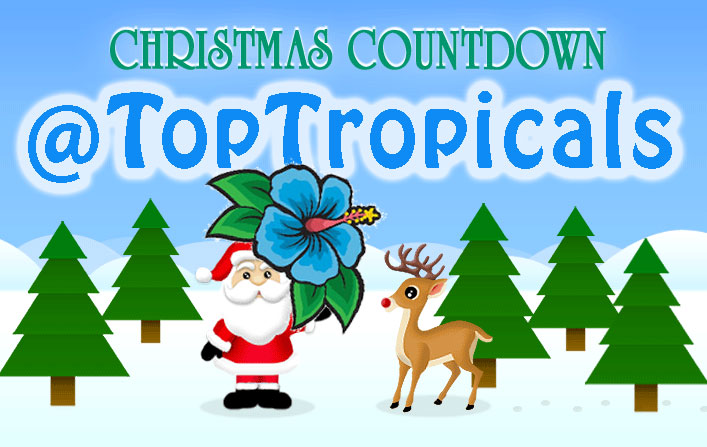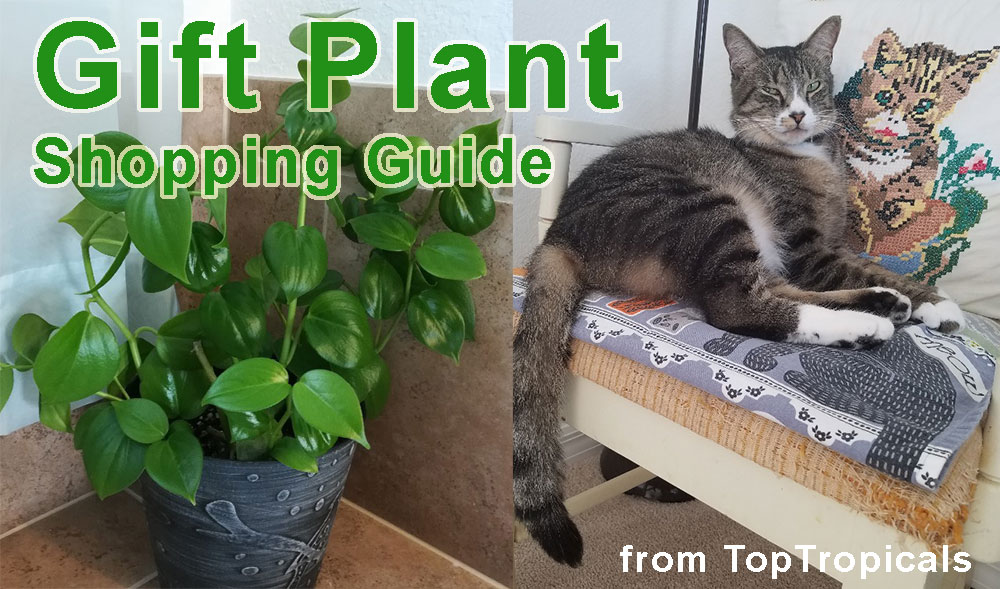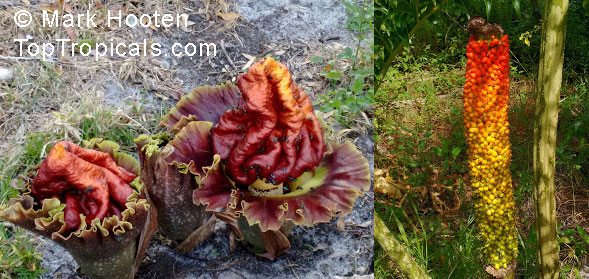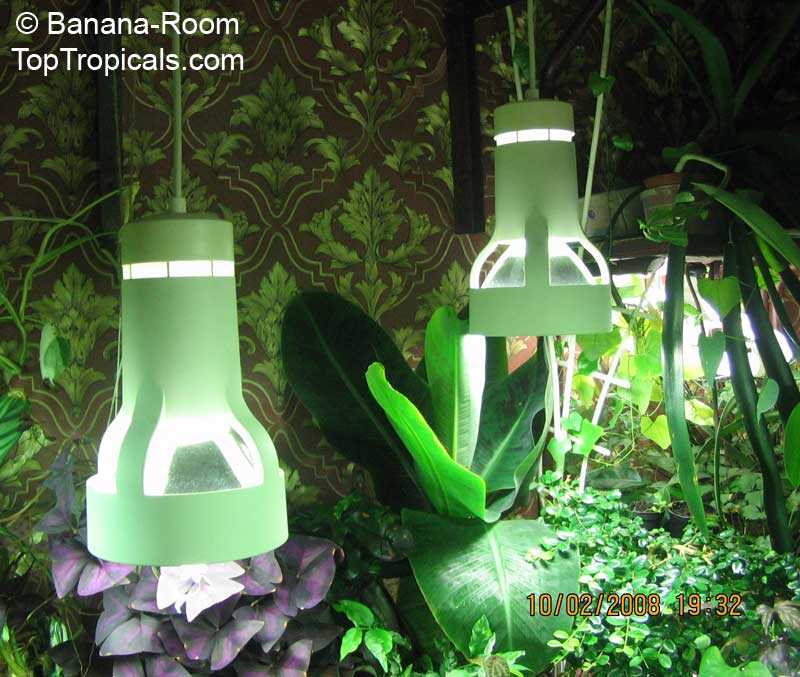Date:
Q: I am in Texas, it is getting cold, but I bought these seeds the last two packs, as I didn't want to miss them, was looking for a long time and found you had them. Should I wait until spring to plant them?
A: You can
grow tropical plants from seed year round and don't have to wait until warm
weather outside. It is, in fact, beneficial to start tropicals indoors in a
controlled temperature, moisture and humidity. Seeds of some species are very
sensitive to excess water and/or require a certain range of temperature for
germination... Besides, it's so much fun!
First, read the basics: Happy Hobby: growing tropicals from seeds
Advantages of indoor growing from seed
It is easier to keep under control indoors:
1) Temperature and Light. Although many tropical seeds require
higher temperature and bright light for germination (hot sun may help), it may
be hard to avoid overheating and drying out when you put trays in full sun.
Using heat pads and additional lighting indoors makes germination smooth, even
may take a little longer than in hot sun.
2) Soil moisture. If you ever lost your seeds or tiny seedlings
to a heavy summer rain, you sure will appreciate your own moisture-controlled
environment! Just make sure to use the right soil mix.
3) Air humidity. Indoor air is drier than outside. It may not be
best for some tropical plants, but definitely perfect for seed health - they
will never get moldy considering you keep your eye on the plantings.
4) Pre-treatment. Some seeds require scarification (sanding down
hard shell), others stratification (cold treatment), but all seeds will
benefit from
SUNSHINE-S soak before planting. It is easier to do in your home lab.
Based on our experience, using Sunshine pre-treatment reduces the risk of
fungal damage and improves germination from 30 to 65%.
5) After germination culture. Watching seedlings closely in your
home environment and giving them all that is needed for healthy, fast growth
- miscroelements and first fertilizer - will help to establish young plants just in time before
planting them out in Spring-Summer.
Read more: From Kristi - how to grow tropicals from seed.
